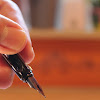Smoking: Why and How to Quit Before Plastic Surgery

Considering plastic surgery? Hold on!
Are you one of the 1 in 5 Americans who smoke?
Cigarette smoke contains over 250 known toxins [1], but you’ve probably heard all of that before.
So let’s get right to the point! You might not want to quit smoking for good, but if you’re going to get plastic surgery, you’ll have to stop for several weeks beforehand and several weeks afterward.
Here's why and how you should quit smoking temporarily for the success of your surgery. Let's dive in!
Why You Should Quit Smoking Before and After Surgery
Increased Risk of Surgical Complications: The Smoking Connection
In the span of a year, about 10 million smokers undergo surgery. Experts recommend quitting smoking one month before the operation and waiting at least one month after the procedure before you begin to smoke again.
This is because smoking increases one’s risk of delayed wound healing and exposure to infection following most surgeries.
And an anastomotic leak is even scarier than it sounds — it’s when a sewn-up connection between organs begins to leak fluids.
Despite the risks, 25-30% of people undergoing plastic surgery still smoke around the time of their operation.
More Reasons to Temporarily Quit Smoking for Surgery
In addition to all this, there are even more reasons why you should quit smoking around the time of your procedure.
Smoking, however, poses even greater risks following face lift, abdominoplasty, and mastopexy (breast lift), given the nature of these procedures. These surgeries involve more extensive dissection through elevation of skin flaps and … the body reestablishes its blood supply within the surgical field. Smoking … narrows small blood vessels and decreases the blood supply to these already compromised skin flaps.
Plus, the skin flaps are getting less blood, and the blood traveling to them are carrying less oxygen. Not only will this increase your risk of infection and delay the healing process, but there are risks of necrosis, skin flap loss, and in cases of breast lifts, even partial or complete nipple loss.
Sounds pretty terrifying, right?
How to Quit Smoking Before and After Surgery

Another reason to quit smoking is that it drastically affects the wrinkling on your face [3]. The more you smoke and the longer you smoke for, the more your face will wrinkle. So, quitting smoking will not only save you money on paying for cigarettes, but you’d be less likely to want plastic surgery down the line if your face is significantly less wrinkled!
It’s not easy, of course.
And claiming that you quit won’t magically keep those adverse outcomes from happening unless you actually bite the bullet and stop for real.
An unfortunate part of some quitting methods is that they have similar effects on the body as actual cigarettes. Thus, other nicotine products (patch, gum, e-cig, vape, etc.) can’t be used for more than those two months you have to quit for [4, 5]. You can still use them for quitting, but you’ll have to let go of them before your procedure happens.
One of the first things you should do is ask your primary-care physician how to quit smoking. If they offer you help, then quitting will actually be easier.
But there are other ways to stop smoking, too!
In a smoking-cessation study, “the most effective program was the one in which participants deposited $150 first. The participants were rewarded $650 if they sustained abstinence from smoking for more than 6 months. People in the deposit-based program also got advice on quitting, access to a free counseling program and were offered nicotine-replacement therapy like gum or the patch. Of those people, 52.3% quit [6].”
It’s okay and even important to ask for help. If you can find a group of people who can help you out, medically and emotionally, then you’ll be much more likely to succeed.
Gum, sprays, skin patches, and other quitting aids that deliver nicotine help you get over any symptoms of withdrawal and those nasty cravings. Vaping is tempting, but studies are still being done. E-cigarettes can help some people, but test groups’ results aren’t too optimistic.
No one method works better than another, but the likelihood of quitting increases by 50-70% if you use at least one of them.
If you’re thinking about quitting cold turkey, you might not want to bother. Only 4-7% of people are able to quit without any help.
Need more help quitting? The American Cancer Society provides great resources and information, WebMD provides proven strategies, and Quit.com provides the benefits of quitting smoking and more resources.
Final Thoughts
Quitting smoking is one of the most difficult things a person can do. But if you want to get any sort of cosmetic surgery, you’ll need to quit for at least two months—one month before the procedure and one month after. There are a lot of methods that help you to quit smoking, so take the time to find the method that works the best for you.
This post is written by Stephanie Power MD, MSc, FRCSC.
Dr. Power completed her MD and plastic surgery residency at the University of Western Ontario. As part of the UWO Clinician Investigator Program, she also completed an MSc in Medical Biophysics. In 2013 she was certified as a plastic surgeon and moved to Toronto to work in Aesthetic Surgery and Trauma Reconstructive Surgery. Operating her practice, Power Plastic Surgery from 199 Avenue Road in Yorkville, Dr. Power maintains her practice with a focus on skin cancer.
Image source: pixabay.com
Reference
- Rinker B. The evils of nicotine: an evidence-based guide to smoking and plastic surgery. Annals of plastic surgery. 2013 May 1;70(5):599-605.
- Khullar D, Schroeder SA, Maa J. Helping smokers quit around the time of surgery. JAMA. 2013 Mar 13;309(10):993-4.
- Koh JS, Kang H, Choi SW, Kim HO. Cigarette smoking associated with premature facial wrinkling: image analysis of facial skin replicas. International Journal of Dermatology. 2002 Jan 1;41(1):21-7.
- Power S. Why is it Important to Quit Smoking Before Elective Cosmetic Surgery? Power Plastic Surgery. 2015 [updated 2015 April 15; cited 2016 Sep 10].
- Aveyard P, Begh R, Parsons A, West R. Brief opportunistic smoking cessation interventions: a systematic review and meta‐analysis to compare advice to quit and offer of assistance. Addiction. 2012 Jun 1;107(6):1066-73.
- Halpern SD, French B, Small DS, Saulsgiver K, Harhay MO, Audrain-McGovern J, Loewenstein G, Brennan TA, Asch DA, Volpp KG. Randomized trial of four financial-incentive programs for smoking cessation. New England Journal of Medicine. 2015 May 28;372(22):2108-17.


